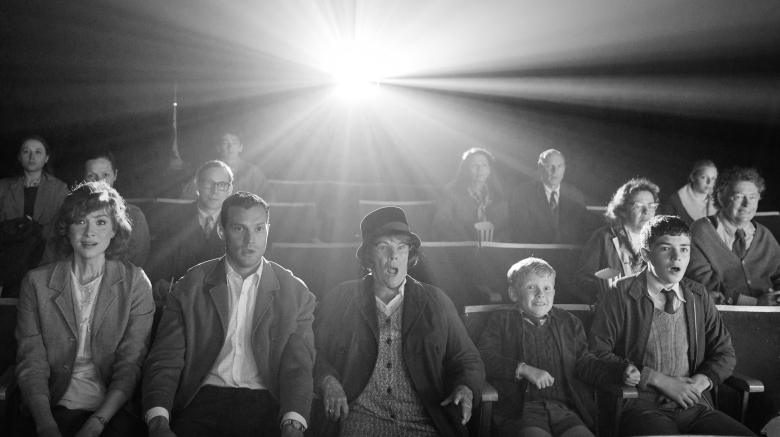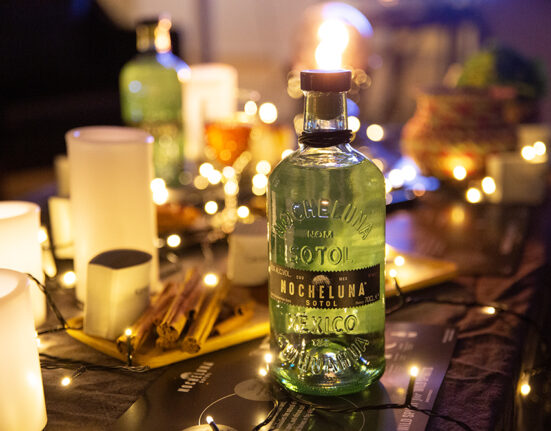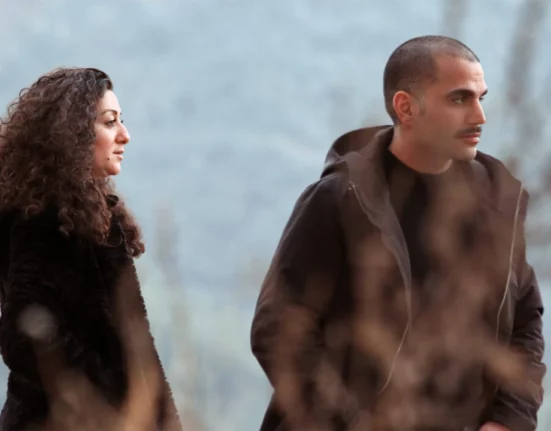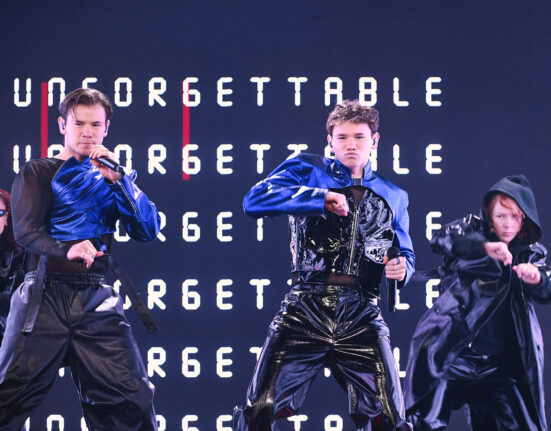We want nothing more than to open our eyes to the world again and this year’s film program, with 100 films from 48 different countries, is filled with critically acclaimed festival gems, crackling debuts and shaky views of a world in constant motion.
Parallel Mothers by Pedro Almodóvar
In Pedro Almodóvar‘s stories, the mother figure has always emerged as the most important link in the life cycle. In Parallel Mothers, there are three mothers of different ages, with different life paths and conditions. What Janis, Ana and Teresa have in common – with the phenomenally cast trio of actresses Penélope Cruz, Milena Smit and Aitana Sánchez-Gijón in the roles – is that they consistently deviate from established maternity ideals. Photographer Janis (Cruz, probably in her best role ever) is approaching forty and has a relationship with a married man who makes her pregnant.
In the maternity ward, she becomes acquainted with another expectant mother, teenage Ana (Smit), her very opposite.
Their daughters are born on the same day and the new mothers have no idea how this fleeting meeting will affect their future. Also in the picture is Ana’s mother, the actress Teresa (Sánchez-Gijón) who hardly rejoices over the prospect of having to look after children and even less over being called a grandmother. The inner life of the three women is also linked to the Spanish national white terror trauma, which gives the film a political weight.
Spencer by Pablo Larraín
Pablo Larraín‘s latest psychological drama Spencer takes place during a dizzying Christmas weekend which becomes the turning point when Lady Diana decides to end her marriage.
Lady Diana, played by the critically acclaimed Kristen Stewart, arrives late for the British royal family’s Christmas celebration. The news of Prince Charles’ infidelity has reached the public and the rift in the marriage is now fully exposed. Between meals and snapped photographs, a wounded Diana capitulates in a tumult of repressed emotions, hallucinations and loneliness.
The Worst Person In The World by Joachim Trier
With his fifth feature film, Joachim Trier advances his position as a virtuoso civilization critic.
With The Worst Person In The World, Trier further broadens his direction, both in terms of palette and motif image. The scale from light and pleasurable to dark and sore becomes longer and richer. When large parts of the festival world look outwards – framing their works with a clear societal pathos – Trier has the guts and courage to look inwards, towards his own middle-class environment. And with this navel-gazing operation, which does not come without risk, he can still land in something that is likely to affect many in many countries.
As a natural new wave enthusiast, Trier has always worked with great freedom: emotionally charged montage, a narrative voice that never apologises, significant tempo changes and a personal direction with precision. It is at the same time playful and serious, a world formed around memory and melancholy.
Luzzu by Alex Camilleri
Impressive debut from Malta about fishermen torn between tradition and modernity. Jesmark, a hard-working fisherman on the island of Malta, is forced to turn his back on generations of tradition and risk everything by joining the black market in order to support his wife and their newborn children.
Luzzu is the first Maltese feature film to compete at an international film festival and provides an insight into the beauty of an island that is rarely portrayed on the big screen. This neorealist drama is also a heartfelt story about the loss of identity linked to tradition and a reflection on the consequences of climate change. The film offers gripping reflections on sustainability and ecosystems and the consequences of climate change for these fishermen and captures their struggle and love for the sea and the colourful boats.
Belfast by Kenneth Branagh
Kenneth Branagh‘s striking and beautiful time travel to the streets of his childhood is predicted to be a favourite during the upcoming gala season. Like Alfonso Cuarón with his Oscar-winning »Roma« (2018), Branagh has taken an intimate detour from his muscular Hollywood films – with extremely acclaimed results.
The film’s nine-year-old main character Buddy is played by the talented newcomer Jude Hill and is a semi-biographical version of Branagh himself. When we first meet him, his life breathes stability and security, characterised by a nice community in the neighbourhood, loving parents and a relentless fad for old western movies. When “the troubles”, the bloody conflicts between Northern Ireland’s Protestants and Catholics, reach Buddy’s protected world, an uncertain future emerges. The threat of a full-scale civil war intensifies the friction in the family and the loyalties in the religiously mixed neighbourhood shift. It is not long before Buddy’s parents begin to discuss the possibility of fleeing Belfast, the only home they know and the place they love so much, in search of security and a brighter future.
Branagh, who both writes and directs, shifts focus from the dizzying external factors, and instead highlights the hope and stubborn Irish fervor that lies within the four walls of the home. It is beautiful, well-played and very moving. In other words, it is no surprise that Belfast is tipped to become a favourite at next year’s Oscars.
Kenneth Branagh is on site in the salon to receive the Stockholm Achievement Award at the gala screening of this year’s final film – “Belfast”. Nov 20, 18:00 Skandia.
Prayers for the Stolen by Tatiana Huezo
In a Mexico torn by the progress of the drug cartels, a group of girls are forced to parry everything that the terrible reality entails. Nine-year-olds Ana, Maria and Paula live in a Mexican mountain village where corn and poppy fields coexist with violence and drug trafficking. The rule of the drug cartels affects everyone, and to make the girls unattractive to kidnappers, Ana’s mother cuts their hair in short hairstyles. As the bloody reality draws closer, the three friends create a refuge in an abandoned house. Prayers for the Stolen is divided into two parts – in one the viewer gets to follow the trio as children and in the other as teenagers. With emotional intensity and realism, the film depicts what it is like to grow up in a life imbued with danger, and the importance of having a sisterhood in a world where girls are low in rank. Prayers for the Stolen was rightly hailed at this year’s Cannes festival.
Zero Fucks Given by Emmanuel Marre & Julie Lecoustre
Gold Palm winner Adèle Exarchopoulos (Blue is the warmest color) flies around the world without a compass in a charming French comedy debut. Cassandra is the flight attendant for a low-cost airline on Lanzarote, which flies from city to city, between shots and tinder dates with no direction in life. The gray-pale drama-comedy Zero Fucks Given undeniably marks a cinematic take off for its French-Belgian debutant duo Emmanuel Marre and Julie Lecoustre, who seem to be on their way to great heights. A sour airport cocktail of boredom, sadness and sex.
Sabaya by Hogir Hirori
Hogir Hirori‘s Sabaya depicts the life-threatening liberation of enslaved Yazidi women from the terrorist sect IS. The word “sabaya” can mean captured woman or female prisoner of war, but is widely recognised under the definition “sex slave”. The film follows the father of many children, Mahmud, armed with a mobile phone and a gun, risking his life to try to save the Yazidi women and girls who are being held in the camp. With intimate access to the core of the operation and nerves of steel, both from Hogir Hirori and the organisation, a captivating film experience is created that leaves one breathless.
Clara Sola by Nathalie Álvarez Mesén
The 40-year-old, shy Clara lives with her family in a small abandoned Costa Rican mountain village, under the wings of an overprotective matriarch. Clara is said to have contact with God, and with her inherent healing powers, she rescues the religious locals. She cures the sick and lost and passionately cares for all living organisms around her, not least her beloved horse Yuca. But her loyalty and devotion to the family and the villagers eventually clash with a longing for something more. A budding curiosity and a sexual awakening takes her on a journey away from the small society’s narrow expectations – towards freedom.
The Swedish-Costa Rican director Nathalie Álvarez Mesén‘s acclaimed debut feature film is a cinematic declaration of love for the supernatural, filled with magical realism and natural mysticism. Clara Sola competed in Cannes in the prestigious side section Directors’ Fortnight.
The Hand of God by Paolo Sorrentino
Naples, the city of contrasts, has over the years been a venue for cultural masterpieces, for films, books and – above all – for football. Director and Oscar winner Paolo Sorrentino is now also looking for this place in his autobiographical Silver Lion-award-winning drama God’s Hand.
The film’s title, of course, alludes to the football legend Diego Maradona‘s historic goal in the 1986 World Cup when the ball was boxed in by the Argentine icon, who afterwards claimed that he received help from God’s hand. The event plays a crucial role in Sorrentino‘s coming of age drama and for its protagonist, 17-year-old Fabietto Schisas, whose chaotic life in the turbulent city is marked by a series of unforeseen events. It’s 1980s. Get ready for a visual chill.












